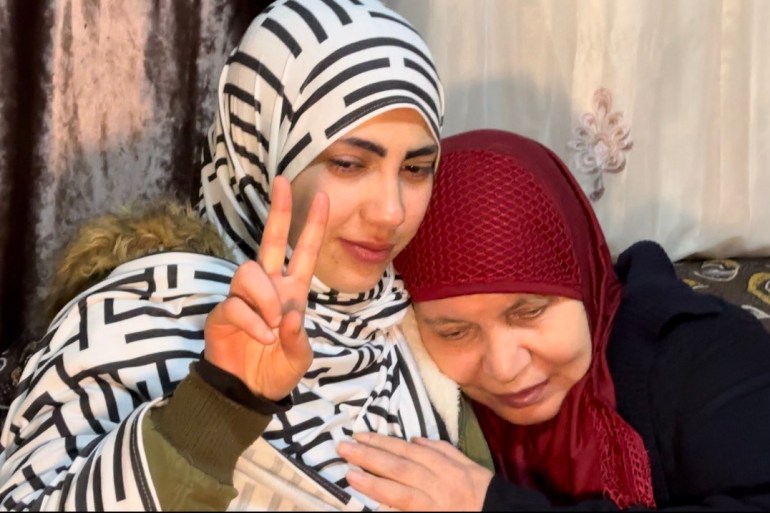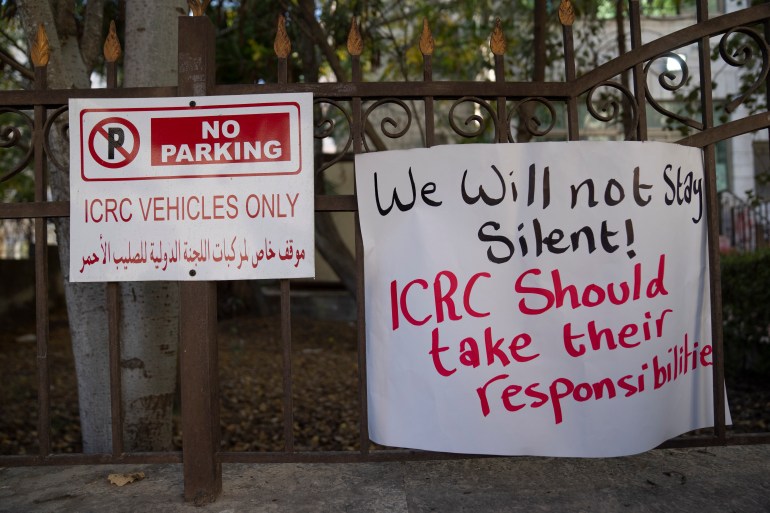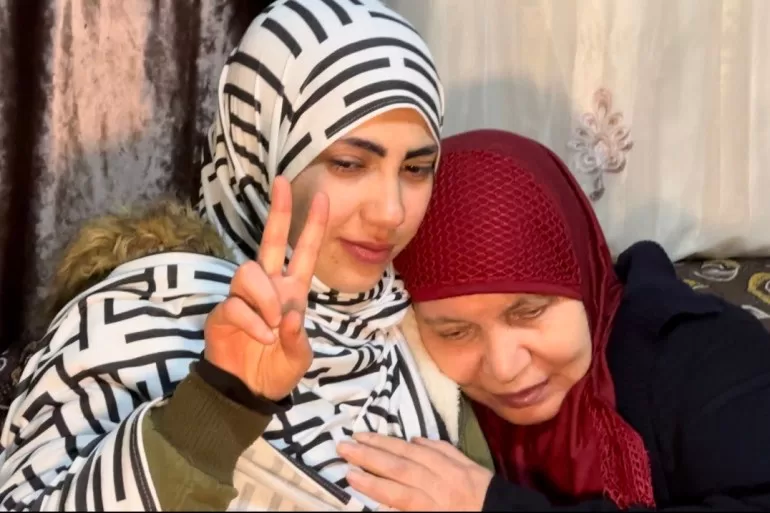Among them is the Palestinian Prisoner’s Society (PPS), which works to support Palestinians in Israeli prisons.
Abdullah al-Zaghari, head of PPS, told Al Jazeera there have been even more serious violations of human rights and international standards on the treatment of prisoners these past months.
He feels, he added, that the Israeli forces’ transgressions are driven by vengeance against Palestinians since the October 7 attack by the Qassam Brigades – the armed wing of Gaza governing party Hamas – and other armed Palestinian factions on Israeli territory.
Since then, Israel has launched a relentless assault on the Gaza Strip, killing more than 28,000 people. In the occupied West Bank and East Jerusalem, it arrested about 7,000 people, sometimes without charges, making the total number of Palestinian prisoners nearly 10,000, adding serious overcrowding to the challenges they face.
At least 250 of those taken are children.
More than half of these detainees are in administrative detention, meaning Israel will hold them for months without due process or charges.
The torture starts right away
Hanin al-Masaeed from Bethlehem’s Aida refugee camp was arrested in October 2023 and released as part of the prisoner exchange deals in November.

She told Al Jazeera that on October 11, Israeli forces raided her home, gathered her family in one room, confiscated her mobile phone, and told her there was a warrant for her. She had assumed the raid was a routine search, an everyday occurrence in Aida.
She was taken, blindfolded, in an Israeli police car, accompanied by a female soldier playing Hebrew songs loudly, putting the speaker up next to al-Masaeed’s ear to goad her. Her hands were tightly bound for four hours.
After four days at the detention centre at Sharon prison, where female guards beat the prisoners, took away their blankets and mattresses at 6am, and gave them only one meal a day, she was transferred to Damon Prison.
Al-Zaghari told Al Jazeera that testimonies from released prisoners reveal beatings, insults, and threats of rape.
He added that the arrest of Palestinian women and girls has increased and that they face torture, ill-treatment, and intentional neglect.
Beaten brutally
Jaafar Obayat, who recently left Megiddo Prison after 17 years, told Al Jazeera that in the days after October 7, prisoners were assaulted and clothes, necessities, food, blankets, TVs, radios, tables and chairs were confiscated.
That prisoners had such items in their cells in the first place was the fruit of struggles by prisoners over decades.
In Negev Prison, prisoner Thaer Abu Asab was killed simply for asking a guard if there was a ceasefire, a released prisoner, who requested anonymity, told Al Jazeera. He added that prisoners were beaten in their cells near-daily.
When Abu Asab asked his question, the response was an ominous “I’ll show you,” then the guard called a whole unit into Abu Asab’s cell. They beat him with iron rods all over, including his face, and left him lying there.
The prisoners were afraid to ask for medical attention, but eventually, unable to watch him suffer, they shouted until a nurse came to examine him. Two days later, they were told he had died.
Everyone in Abu Asab’s cell, the anonymous prisoner said, was beaten with iron rods after that.
The PPS has recorded thousands of injuries – fractures, bruises and worse – among imprisoned Palestinians who get no treatment. Eight prisoners have died in the last four months after being beaten and not treated, like Mohammed al-Sabar, who died in Ofer prison on February 8.
Catastrophic conditions, humiliation
The significant overcrowding, lack of hygiene, hunger, and cold have led to diseases spreading among prisoners.
Jameel al-Draawi from al-Obeidiyah east of Bethlehem, who was released on January 11 after 18 years of detention, said the assaults, deprivations, and denial of medical care have made life unbearable for the prisoners.
Prisoners with chronic diseases, he added, were already neglected before the war but prison authorities then stopped their medications and treatment. Mobility aids and other medical devices were also taken away.
In prison, prisoners cannot shower and often have to wash their clothes and put them on wet because their other clothes have been confiscated, which spreads disease. Their cells are overcrowded, prisoners sleep on the floor without blankets.
PPS has also pointed out that Israeli prison authorities give prisoners nethier enough nor properly prepared food.
Israeli authorities have also started making Palestinians strip for transport and assign them numbers instead of names in an attempt to humiliate them – Israeli soldiers even circulate videos of themselves assaulting prisoners.

PPS also documented attacks in which special units entered prisoner’s cells to assault prisoners and trample on their heads. In one instance, prisoners were forced to the ground and female recruits were told to step on their heads.
Former prisoner Kamal Abu Arab said, “The occupation does not respect our humanity, and the prisoners feel forgotten. No one mentions them; no visits from lawyers, no visits from the Red Cross.
“News is prohibited, prayers and the call to prayer are prohibited, medical treatments are prohibited, and requests are prohibited. According to the administration of the prison service, we have no rights as humans.
“Does anyone remember us in this world?”
Since October 7, prison visits by the Red Cross to prisons in Israel have been stopped, suspending accountability.
The organisation would visit each prison at least once a month, and used to be officially notified by Israel’s prison service of all arrests. This allowed the Red Cross to inform the detainees’ families, but that is no longer possible.
Al-Zaghari says the Red Cross has not exerted enough pressure to ensure Israeli compliance with international standards.
For his part, Ziyad Abu Laban, official spokesperson for the International Committee of the Red Cross, confirmed that there had been no prison visits since October 7 and that resuming the visits is a top priority.
Today, many Palestinians wonder why Israel escapes accountability and question the effectiveness of conventions and international agreements.
